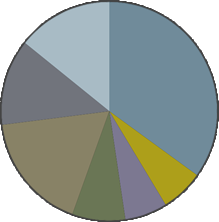The Master of Science in Public Health (MSPH) in Epidemiology is a professional degree designed for students with strong quantitative skills seeking a more in-depth education in epidemiologic methods. This degree program is particularly well-suited for students who are interested in a research-focused career.
MSPH Epidemiology
Skills
- Identify, collect, manage, analyze, interpret, and report population-based data to drive control and prevention
- Develop additional abilities in advanced epidemiologic methods
Admission Requirements
As part of the SOPHAS application, all applicants will need to submit the following materials when applying to Rollins:
- Personal statement including your interest in the field of Public Health and Epidemiology as well as your interest in Rollins School of Public Health. Please address your career goals.
- Resume
- Two letters of recommendation
- College transcripts
- The submission of GRE scores are optional for all candidates applying to MPH and MSPH programs for fall 2022 admission.
Detailed information about each of these admission requirements can be found in Admissions.
Stats for recently admitted students:
Average GPA 3.7
Quantitative GRE (25%, 75%) 162, 167
Verbal GRE (25%, 75%)
12, 161
Application Requirements
| Degree | Coursework Req | GPA | |
|---|---|---|---|
|
EPI |
College level calculus and one college science |
Minimum preferred GPA of 3.5 |
MSPH Degree Requirements
48 credit hours: Includes a Thesis and an Applied Practice Experience.
This degree program is also offered as a dual degree and in part-time format. For additional information please email sphepidept@emory.edu.
Applied Practice Experience (APE)
An Applied Practice Experience (APE) is a unique opportunity for graduate students to integrate and apply practical skills and training learned through course work and prior experiences in a professional public health environment. All RSPH graduate students are required to complete an APE of at least 200 work hours in a public health agency, institution, or community under the supervision of site supervisor and the guidance of the Department. Although there are no credits associated with the APE requirement, the completion of the requirement is noted on the student’s transcript.
Integrative Learning Experience - Thesis
Examples of past thesis titles include:
Disproportional demographics and tumor characteristics of cancer cases treated in Commission on Cancer (CoC) versus non-CoC accredited hospitals in Georgia
An investigation of the variation of level of lesion of spina bifida in all births in the presence and absence of maternal folic acid supplementation in China, 1993-1996
Associations of base excision repair genotypes with incident, sporadic colorectal adenoma according to antioxidant enzyme genotypes and oxidative balance-related environmental exposures
Catalog & Schedules
What is the difference between an MPH and an MSPH in EPI?
The MPH degree is a professional degree that requires 42 hours of coursework, an integrative learning experience, and an applied practice experience.
The MSPH degree is a professional degree tailored to students with strong quantitative skills seeking to specialize in epidemiologic research and methods. It requires 48 hours of coursework, a thesis, and an applied practice experience.


